Two students perform experiments on series and parallel combinations of two given resistors R1andR2 and plot the following V - I graphs [Fig. 5.24.]. Which of the graphs is/are correctly labeled in terms of the words 'series' and 'parallel'? Justify your answer.
![Two students perform experiments on series and parallel combinations of two given resistors R1 and R2 and plot the following V - I graphs [Fig. 5.24.]. Which of the graphs is/are correctly labeled in terms of the words 'series' and 'parallel'? Justify your answer.](https://d10lpgp6xz60nq.cloudfront.net/physics_images/BMS_V03_C05_S01_024_Q01.png)
We know that the resistance (Rs) in series combination of two resistors is more than the resistance (Rp) in parallel combination of the same two resistors, i.e., Rs>Rp. As I=V/R, for a given pd (V), Is<Ip . In both the graphs, for a given pd (v) across each combination, is<Ip. Hence, both the graphs are properly labelled.
Topper's Solved these Questions
- BOOK - PRADEEPCHAPTER - ELECTRICITYEXERCISE - Value Based Question4videos
ELECTRICITY
- BOOK - PRADEEPCHAPTER - ELECTRICITYEXERCISE - Problem For Practice59videos
ELECTRICITY
- BOOK - PRADEEPCHAPTER - ELECTRICITYEXERCISE - Based On Practical10videos
ELECTRICITY
- BOOK - PRADEEPCHAPTER - MAGNETIC EFFECTS OF ELECTRIC CURRENTEXERCISE - Mock Test21videos
MAGNETIC EFFECTS OF ELECTRIC CURRENT
Similar Questions
Two students perform experiments on series and parallel combinations of two given resistors R1andR1 and plot the following V -1 graphs [Fig. 5.24.]. Which of the graphs is/are correctly labeled in terms of the words 'series' and 'parallel'? Justify your answer.
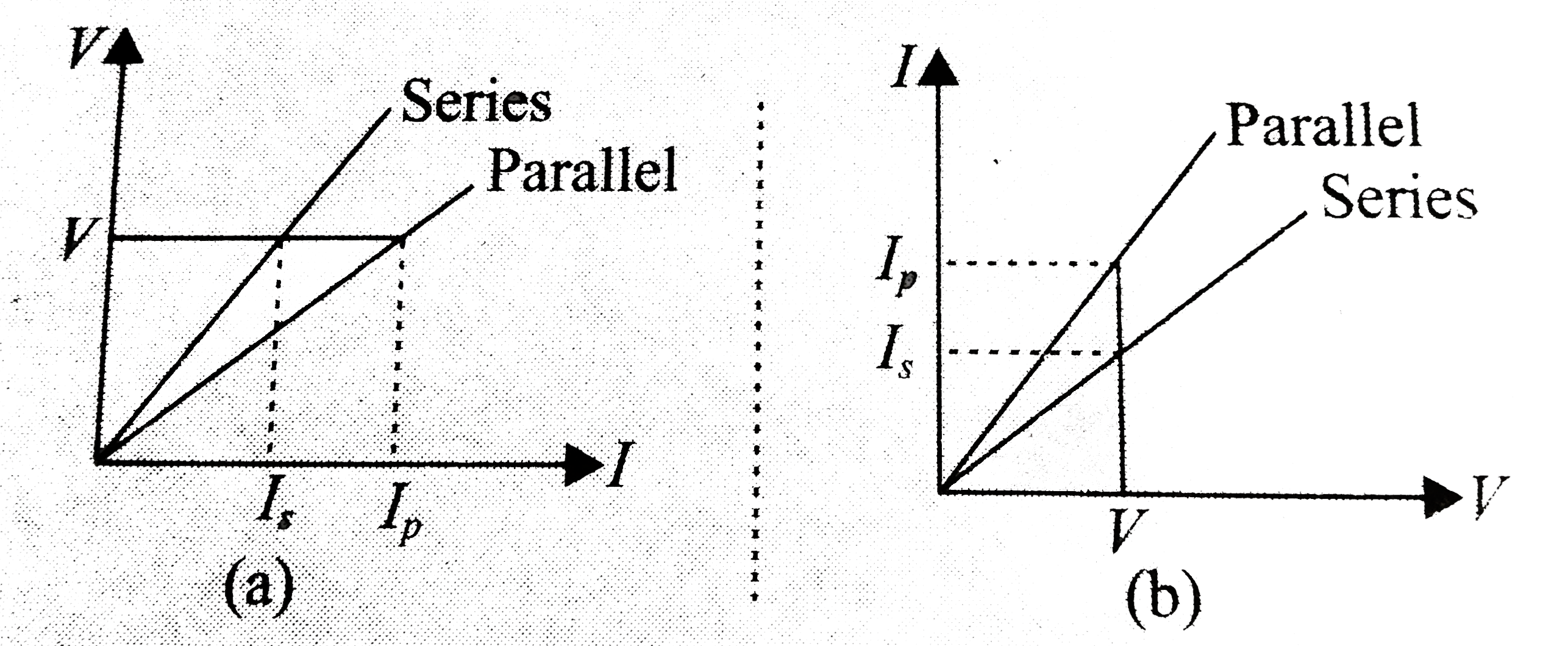 View Solution
View SolutionTwo students perform the experiment on series and parallel combinations of two given resistors R1 and R2 and plot the following V-I graphs (a) and (b).
Which of the graphs is (are) correctly labelled in terms of the words 'series' and 'parallel'? Justify your answer.
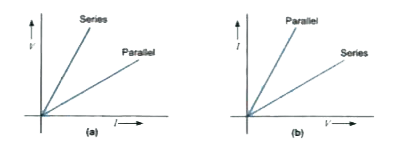 View Solution
View Solution
Knowledge Check
- Question 1 - Select One
For students performed experiments on series and parallel combination of two given resistors R1and R2 which obey Ohm's law and plotted the following V-I graphs :

Which of the graphs is correctly labelled in terms of 'series' and 'parallel' ?Agraph ABgraph BCgraph CDgraph D - Question 2 - Select One
Two students perform experiments on two given resistors R1andR2 and plot the following V-I graphs. If R1>R2, which of the diagrams correctly represent the situation on the plotted curves?
A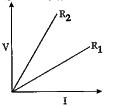 B
B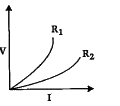 C
C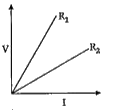 D
D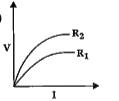
- Question 3 - Select One
Consider two resistors R1 and R2 in series. The current flowing through R1 and R2 is
AR1=/,R2=2/BR1=/2,R2=1/2CR1=/,R2=/DR1=1/2,R2=2/
Two students perform experiments on two given resistors R1 and R2 and plot the following V-I graphs. If R1>R2 which of the two diagrams correctly represent the situation on the plotted curves? Justify your answer.
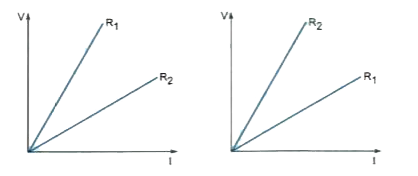 View Solution
View SolutionThe V - I graphs for two resistors and their series combination are shown in Fig 5.23. Which one of these graphs represents the series combination of the two resistors? Given reason for your answer.
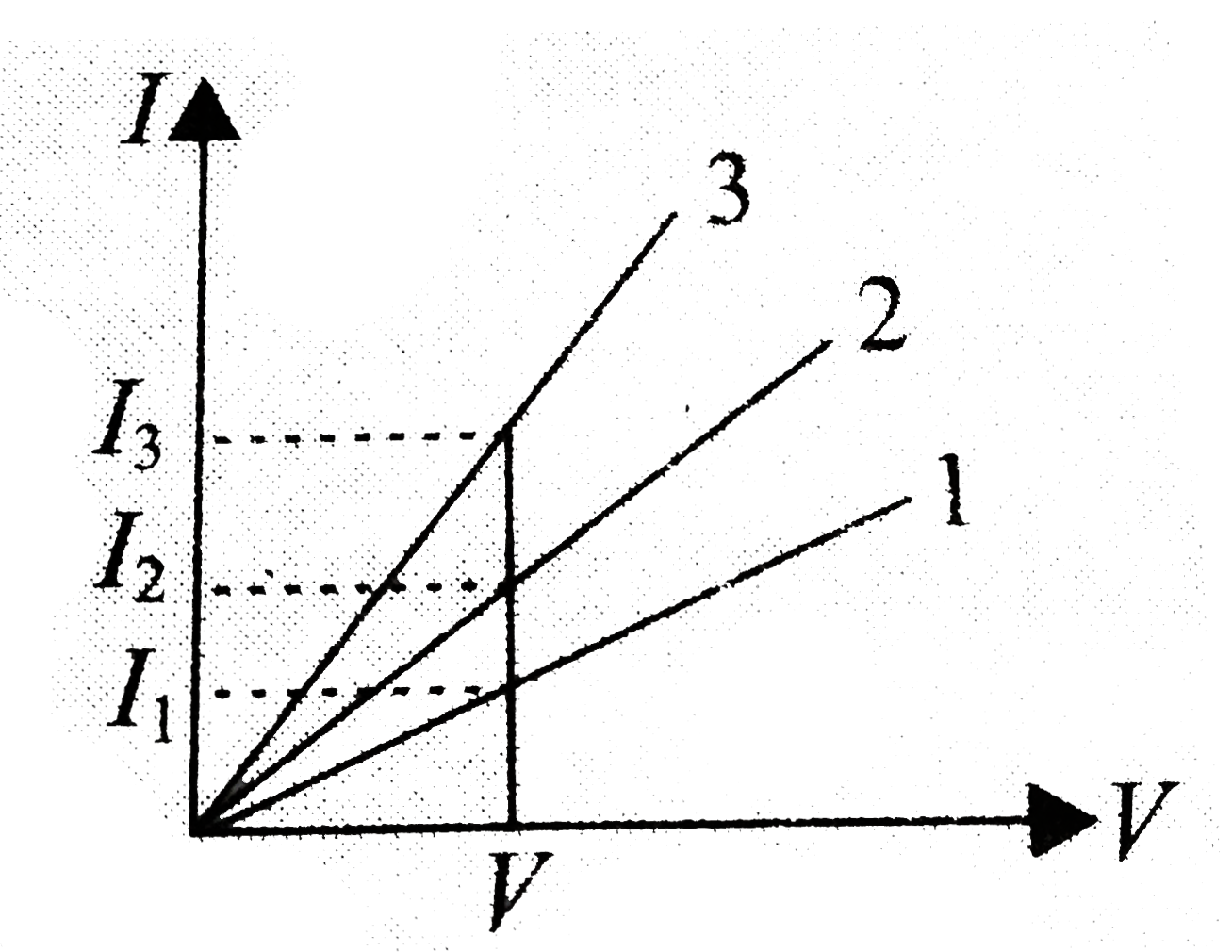 View Solution
View SolutionIn an experiment to find the equivalent resistance of a series combination of two resistors R1 and R2,a student uses the circuit shown here. Will the circuit give the correct reading for current I and voltage V ? Justify your answer.
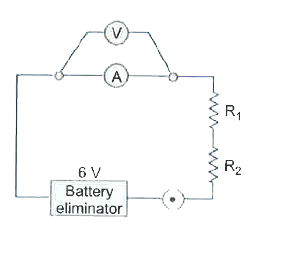 View Solution
View SolutionA (i) series (ii) parallel combination of two given resistors is connected one by one across a cell. In which case will the terminal potential difference across the cell have higher value?
View SolutionThe V−I graphs of parallel and series combinations of two metallic resistors are shown in (Fig. 3.53). Which graph represents the parallel combinations ?
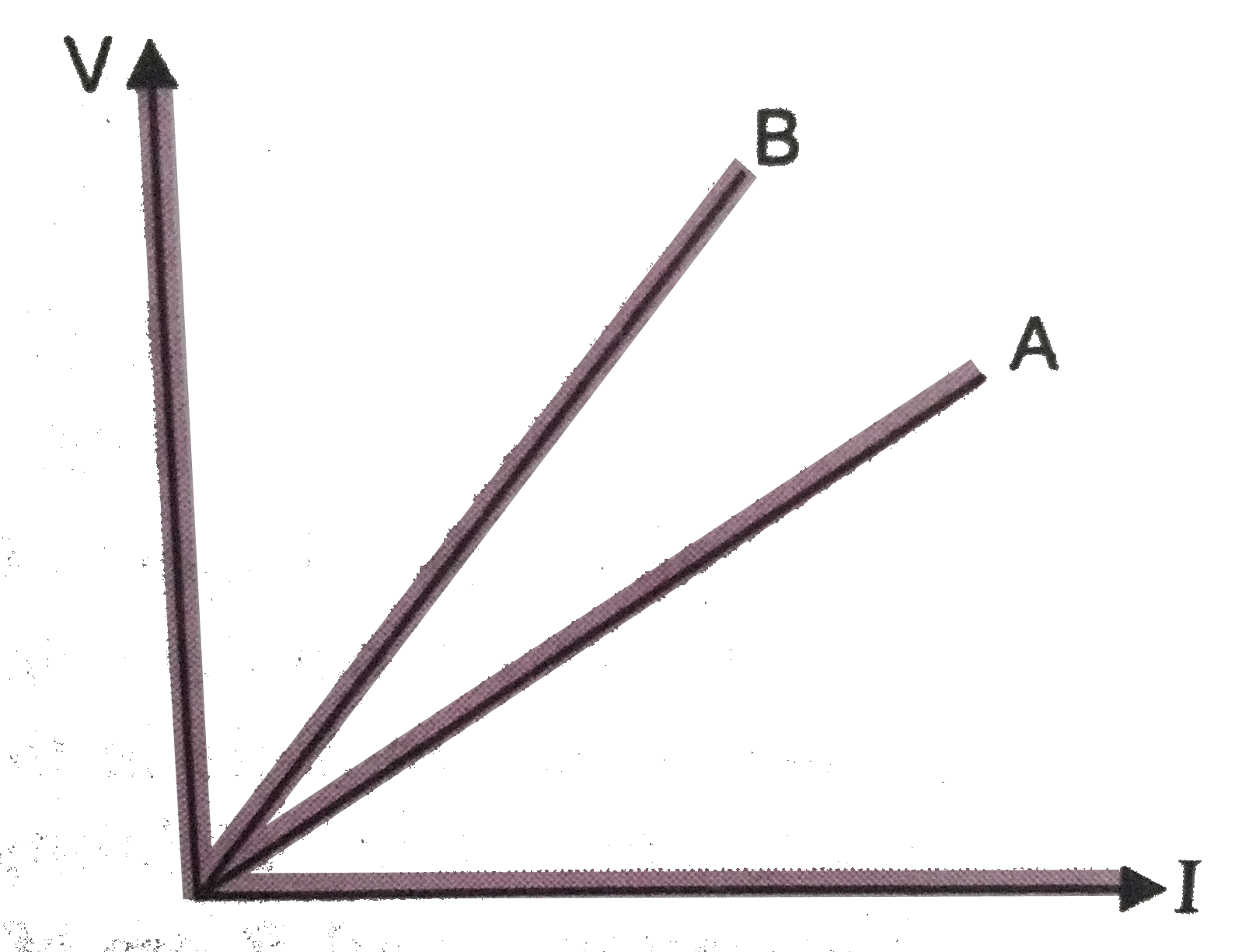 .View Solution
.View Solution

